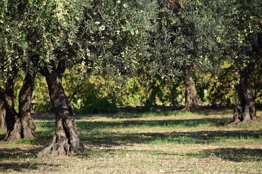The inherent values of shemitah

See here for full sources in a PDF file.
Many of these ideas were taken from the book by Rabbi Yosef Zvi Rimon, Shemita (pp. 18-28).
According to the Sefer Hachinuch, there are more than 45 mitzvot that are considered mitzvot hateluyot ba’aretz, mitzvot dependent on the Land of Israel, and they fall into two categories:
(1) Laws related to the sanctity of the land, as manifested by helping the poor and mutual responsibility (such as ma’aser ani, shemitah, lekket, shichechah, pe’ah, peret, ‘ollelot, ma’aser rishon);
(2) Mitzvot that are an expression of our bond with the sanctity of Jerusalem, the sanctity of the kohanim, and to the sanctity of the Beit Hamikdash (such as terumah gedolah, terumat ma’aser, ma’aser sheni, bikkurim, hafrashat challah, neta revai, orlah, kilei zera’im, kilei hakerem, kilei ilan, and chadash).
There are three shemitah cycles: human and earth; human and G-d; human and fellow human.
Shemitat hakarka (when land reverts to its original owners based on ancestral inheritance) is mentioned in parshat Mishpatim, (Shemot 23) and in parshat Behar (Vayikra 25).
During the shemitah year it is forbidden to sow and plant, to trim existing plants, or to harvest them. Yet everyone manages to eat during shemitah, including poor people, including animals. So, you may ask: What, exactly, are we supposed to do and NOT do during shemitah?
It boils down to the following: commercial harvest is forbidden, while private harvest is allowed.
In parshat Mishpatim, the emphasis is on interpersonal relationships, one person to another. (Most of parshat Mishpatim deals with mitzvot, or commandments, regarding interpersonal relationships.) Parshat Behar, however, addresses both interpersonal relationships as well as the relationship of the human being and his Creator.
It says, in parshat Mishpatim, that the seventh year should be “released” or “abandoned” שמיטה– and this is what the Hebrew word shemitah means.
In parshat Behar, the name of G-d appears, as “the land rests, a Sabbath to G-d.”
Foundations of the Shemitah Theme
Three cycles are repeated during the shemitah year: human and earth; human and G-d/himself, and human and fellow humans.
Rambam – The farmer
Rambam (The Guide for the Perplexed 3: 39): “so that the soil multiplies and strengthens.”
The reason the Rambam brings is connected to farming: The soil needs periods of rest, and is even compared to animals and human beings who cannot work non-stop day and night, but also require periods of rest. Land or soil is compared to animals and to humans, all of whom cannot work non-stop and need rest periods. Thus the shemitah land mitzvah after seven years is parallel to the Shabbat rest cycle, after seven days. On Shabbat we need to stop, rest, gather up our strength and recharge our batteries for the coming week.
The Midrash tells us that Moshe asked Pharaoh to give the Israelite slaves one day of rest so that they would work more efficiently on the other six days, and Pharaoh agreed. Land is compared to the human being, as an organic entity. However, the mitzvah of shemitah is connected only to Eretz Yisrael and no other place. Thus we relate to Eretz Yisrael’s soil as a living entity, while the rest of the world’s soil is inanimate.
Rambam – Society, socialization
Rambam (The Guide for the Perplexed 3: 39) – “compassion and mercy for all human beings, as it says [in the Torah], ‘My paupers shall eat with you.’”
The Rambam addresses the social facet of poverty: Yes, poverty involves great distress; the person does not have enough to eat and is dependent on the whims of others to help him. Poverty is not a new phenomenon. It has existed from the dawn of time. There are numerous mitzvot in the Torah regarding our obligations to the weak and indigent in our midst: charity, ma’aser kesafim (donating a tenth of our money), ma’aser ani, and more. The Rambam says, “We have never seen or heard of a Jewish community that does not have a charity fund” (Rambam, Gifts to the Poor 9:3).
True, the mitzvah of shemitah is a bit different: The well-to-do do not actually give to the indigent, but the indigent freely enter the fields of the well-to-do and take what they need. The fruits and vegetables are all ownerless and everyone can come and pick whatever they want; during this year the produce of the field belongs to the rich and poor alike. The owner does not give to the poor; the produce belongs to everyone and the rich and poor take alike. It is as if during one year out of seven, everyone earns the same amount. The Torah wants to ensure that the owner of the field understands that the field is not his during this year, therefore he cannot work there as an owner, lord and master. The poor do not ask for alms during this year but just pick the produce of the more wealthy members. Thus shemitah is a year of equality, when there is a blurring of status of the wealthy and the poor.
Sefer Hachinuch – Compassion
Sefer Hachinuch (84) “There is also great value [in the shemitah year] in that we become more lenient (i.e. compassionate) to our fellow man.”
The person releases his field to strengthen his ability to concede to the other. The release of the land is not for the poor person, but for the wealthy land-owner who learns that wealth is not everything. Releasing one’s land affects people in other areas, such as: the ability to concede to one’s spouse, to give up one’s turn in line at the supermarket to the woman with the crying infant, and the like.
Shemitah also causes the wealthy to understand poverty and how poor people feel.
Sefer Hachinuch – It’s not all because of me
Sefer Hachinuch (84) – “So that the person will remember that the land that produces its fruits for him ... does not do so because of its intrinsic qualities. There is a Master over all.”
The crop does not appear only because of our hard work, but due to the help of the Creator. Yes, there is a Master of the world, a Master Who commands the land to produce its wheat after agricultural work. It is not only due to human effort alone.
The truth is that the farmers – as opposed to those who work in other professions – feel this all the time. The factory owner knows at the beginning of the year what will happen at the end of the year. But in agriculture, there are many more unknowns: Will it rain enough this year? Will it rain at the right times? Will my fields suffer attacks by pests? What about agricultural terror? Will the prices of vegetables/fruits be high enough? And what will happen to the other farmers who grow the same produce as we do – will we all be able to make a living?
The farmer can be the best farmer in the world and still have an unsuccessful year. Chazal understood this when said “one must believe in G-d and then plant”: the farmer is always praying to the Heavens, that his crops grow properly. The key is: humility.
During shemitah, the human being loses his grip. The world is not his, but belongs to the Creator. Nature is not independent, but operates under the directives of a higher power.
Sefer Hachinuch – Trust and security
Sefer Hachinuch (84) – “the person will increase his trust in Hashem.”
During shemitah, people do not plant and work the land. Instead, they forfeit (or abandon) their land, and place their trust in the Creator.
In essence, people return to the forty years of walking in the desert where the Israelites received manna every morning. This was a heavenly bread, but it would not keep from day to day. Instead, the Israelites had to believe that they would receive this food every single day.
Ba’al Ha'akeida – Being satisfied with minimum necessities
In “B’Ma’aglei Shevi’it” p. 219.
The shemitah year teaches us how to make do with less food, less variety, less treats and enjoyments. Money subjugates us, compelling us want to buy everything we see and consume more and more. There is a tremendous gap between the basic foods we need and the culture of plenty and the lavish meals we enjoy every day. Abundance and wellbeing are not negative per se, but should be viewed from the proper context of luxuries and extra amenities that do not control us, but that we control ourselves. Although the shemitah year addresses food specifically, we can extend it today to the entire culture of consumerism. People work hard, day and night, to make money in order to indulge themselves in luxuries. Yet they do not have time for the important things: family, spirituality, love, charity and benevolence.
Sefer Hachinuch – shemitah, a memorial to the creation of the world
Sefer Hachinuch (84) – “to firmly set in our hearts ... renewal of the world, ‘because in six days the Lord made the heavens and the earth’... and in order to totally uproot the beliefs of the heretics.”
How is shemitah connected to the creation of the world?
Again, shemitah of the seventh year can be compared to Shabbat of all seven days.
We do not work on Shabbat, just like G-d “rested” on the seventh day after six days of work. We also do not work during the shemitah year and always recall that G-d created the world.
A cycle of seven days and seven years testifies to the creation of the world, because it does not reflect a cycle in the physical world. A 24-hour day is related to the circumference of the earth, a month is the duration of the moon's orbit around the earth, and a year is the duration of the earth's orbit of the sun. Only the seven day cycle is independent of the astronomical cycle, and is accepted almost universally! This is the explanation of “a memorial to the creation of the world,” by using the cycle of the seven days, we remember the creation of the world; and similarly, the seven-year cycle.
Rabbi Kalisher – Emphasis on spirituality
“They will not be busy with working the land forever, to fulfill basic needs ... when they will dismantle the yoke of work, they will busy themselves with Torah.”
The shemitah year is a Sabbatical year, and reminds us of teachers in Israel who, every seven years, cut down on their regular work and instead study: for masters’ degrees, take courses on topics connected to their work, or even pursue general topics for enrichment. They may also devote time to the family and home, or helping the needy, and of course study Torah.
People refresh, renew, and recharge.
People save for the six years in a savings account, and in the seventh year they take out the money they earned (plus the interest received) and use it.
Shemitah in our days
Most of us are not farmers. Can we, nevertheless, implement the rationale of shemitah in our lives today?
We said that shemitah reminds us that the land belongs to G-d and that we should help the poor.
Professionals can provide professional assistance for free, to people who cannot afford to pay (lawyers, dentists, accountants and the like).
Ma’aser with time – devoting weekly time-slots to chesed and gemilut chasadim.
Shemitat kesafim
The Torah commands us to cancel all our loans at the end of the seventh year. In other words: the poor people who borrowed money are not obligated to return the money they borrowed. Hopefully, this will help society to realign itself and help the poor start out with a clean slate without being bogged down by old debts.
A religious socialism of sorts.
Devarim 15:
Shemitah and Yovel
The yovel year takes place every fifty years. During the yovel year, all the plots of land are returned to their owners, and the slaves are freed.
Vayikra 25:10: verses about yovel
The Inherent Values of Shemitah – Rabbi Moshe Bloom:
A. “Six years you shall sow your land and gather in its yield; but in the seventh you shall let it rest and lie fallow. Let the needy among your people eat of it, and what they leave let the wild beasts eat. You shall do the same with your vineyards and your olive groves." (Shemot 23:10–11)
B. “When you enter the land that I assign to you, the land shall observe a sabbath of the Lord. Six years you may sow your field and six years you may prune your vineyard and gather in the yield. But in the seventh year the land shall have a sabbath of complete rest, a sabbath of the Lord: you shall not sow your field or prune your vineyard. You shall not reap the aftergrowth of your harvest or gather the grapes of your untrimmed vines; it shall be a year of complete rest for the land. But you may eat whatever the land during its sabbath will produce—you, your male and female slaves, the hired and bound laborers who live with you, And your cattle and the beasts in your land may eat all its yield.” (Vayikra 25:2–7)
C. "Every seventh year you shall practice remission of debts. This shall be the nature of the remission: every creditor shall remit the due that he claims from his fellow; he shall not dun his fellow or kinsman, for the remission proclaimed is of the Lord. You may dun the foreigner; but you must remit whatever is due you from your kinsmen. There shall be no needy among you—since the Lord your God will bless you in the land that the Lord your G-d is giving you as a hereditary portion—if only you heed the Lord your G-d and take care to keep all this Instruction that I enjoin upon you this day. For the Lord your G-d will bless you as He has promised you: you will extend loans to many nations, but require none yourself; you will dominate many nations, but they will not dominate you.
"If, however, there is a needy person among you, one of your kinsmen in any of your settlements in the land that the Lord your G-d is giving you, do not harden your heart and shut your hand against your needy kinsman. Rather, you must open your hand and lend him sufficient for whatever he needs. Beware lest you harbor the base thought, “The seventh year, the year of remission, is approaching,” so that you are mean to your needy kinsman and give him nothing. He will cry out to the Lord against you, and you will incur guilt.
Give to him readily and have no regrets when you do so, for in return the Lord your G-d will bless you in all your efforts and in all your undertakings.
For there will never cease to be needy ones in your land, which is why I command you: open your hand to the poor and needy kinsman in your land." (Devarim 15:1–11).
Foundations of Shemitah - Rabbi Moshe Bloom
Rambam (The Guide for the Perplexed 3: 39): "so that the soil multiplies and strengthens."
Rambam (The Guide for the Perplexed 3: 39) – “compassion and mercy for all human beings, as it says [in the Torah], 'My paupers shall eat with you.'”
Sefer Hachinuch (84) “There is also great value [in the shemitah year] in that we become more lenient (or compassionate) to our fellow man.”
Sefer Hachinuch (84) – “So that the person will remember that the land that produces its fruits for him … does not do so because of its intrinsic qualities. There is a Master over all.”
Sefer Hachinuch (84) – “the person will increase his trust in Hashem.”
Ba’al Ha’akeidah – being satisfied with minimum necessities.
Rabbi Kalisher - “They will not be busy with working the land forever, to fulfill their basic needs ... when they dismantle the yoke of work, they will busy themselves with Torah.”
Yovel:
"And you shall hallow the fiftieth year. You shall proclaim release throughout the land for all its inhabitants. It shall be a jubilee for you: each of you shall return to his holding and each of you shall return to his family. … But the land must not be sold beyond reclaim, for the land is Mine; you are but strangers resident with Me.
Throughout the land that you hold, you must provide for the redemption of the land." (Vayikra 25:10–24)




